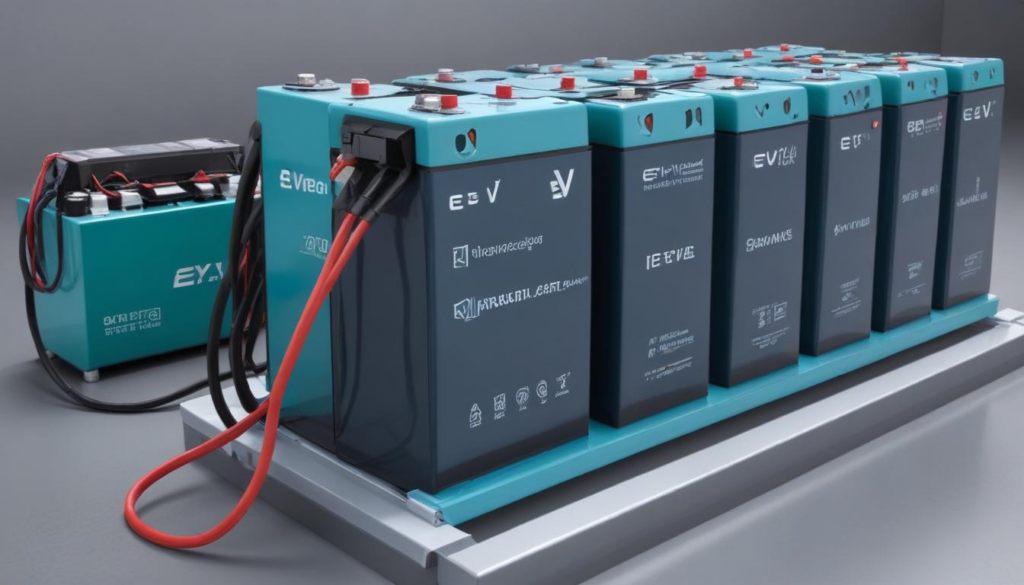
India Energy Storage Alliance (IESA) champions a future where EV batteries don’t simply become waste at the end of their first life. IESA envisions a robust ecosystem built around the reuse of these batteries, transforming them from potential environmental hazards into valuable resources. Their vision is rooted in the principles of sustainability, aiming to minimise the environmental impact of electric vehicles and promote a circular economy.
IESA sees tremendous potential in repurposing EV batteries for various secondary applications. This includes energy storage systems for homes, businesses, and even grid-scale projects. By giving EV batteries a second life, IESA aims to reduce the demand for new battery production, conserving precious resources and lowering carbon emissions. They actively promote the adoption of green technology and best practices within the industry.
As a leading industry body, IESA is actively working to facilitate the development of this ecosystem. They are involved in research, policy advocacy, and awareness campaigns to highlight the benefits of battery reuse and recycling. Their work focuses on creating a supportive environment for businesses and innovators to thrive in this emerging sector, ultimately driving the growth of a sustainable energy storage market in India and beyond.
Repurposing EV batteries offers a multitude of advantages that extend beyond environmental considerations. Economically, it can significantly reduce the cost of energy storage solutions. Second-life batteries, while not suitable for the demanding requirements of electric vehicles, can still provide substantial energy storage capacity for less critical applications, making energy storage more accessible to a wider range of consumers and businesses.
From a sustainability perspective, battery reuse minimises the environmental footprint associated with battery production. Extracting raw materials and manufacturing new batteries are energy-intensive processes that contribute to greenhouse gas emissions. By extending the lifespan of EV batteries through reuse, we can significantly reduce the demand for these resource-intensive activities. This aligns perfectly with IESA’s commitment to promoting green technology and a circular economy in India.
Moreover, a thriving battery reuse industry creates new economic opportunities and jobs. The processes involved in testing, refurbishing, and repurposing EV batteries require skilled technicians and engineers, fostering innovation and growth in the energy storage sector. As an industry body, IESA recognises the potential for India to become a global leader in battery reuse and recycling, driving economic growth while promoting environmental stewardship.
Despite the clear advantages, the path to widespread EV battery reuse isn’t without its obstacles. One major hurdle lies in the standardisation of battery technology. The lack of uniformity in battery designs, chemistries, and management systems across different electric vehicles makes it challenging and costly to assess, repurpose, and integrate second-life EV batteries into new applications. This inconsistency increases the complexity of testing and refurbishment processes, hindering the scalability of reuse initiatives.
Another significant challenge is ensuring the safety and performance of reused EV batteries. Thorough testing and certification are essential to guarantee that these batteries meet the required safety standards for their new applications. Concerns about degradation, thermal runaway, and potential hazards need to be addressed through rigorous quality control measures. Developing robust testing protocols and certification frameworks is crucial for building trust and confidence in the reliability of second-life batteries.
To overcome these challenges, collaboration is key. IESA actively promotes partnerships between automakers, battery manufacturers, energy storage companies, and research institutions. By working together, stakeholders can develop common standards, share best practices, and create innovative solutions for battery reuse and recycling. Furthermore, government support and policy incentives are essential to encourage investment in this emerging sector and accelerate the transition towards a circular economy for EV batteries in India. This includes financial support for research and development, tax incentives for companies involved in battery reuse, and clear regulatory frameworks to ensure responsible and sustainable practices. IESA, as a leading industry body, is actively advocating for such policies.
The growth of the EV battery reuse sector hinges significantly on robust collaboration between various stakeholders. IESA plays a pivotal role in fostering these partnerships, bringing together automakers, battery manufacturers, energy storage companies, and research institutions. These collaborative efforts are crucial for establishing industry standards, streamlining processes, and promoting best practices for EV batteries’ second life.
Standardisation of battery technology is a key area where industry-wide cooperation is essential. By working towards common battery designs and management systems, the challenges associated with assessing, repurposing, and integrating second-life EV batteries can be significantly reduced. This will make the reuse process more efficient and cost-effective, ultimately boosting the scalability of reuse initiatives across India.
Furthermore, collaborative research and development initiatives are vital for advancing battery reuse technologies. By pooling resources and expertise, stakeholders can develop innovative solutions for testing, refurbishment, and integration of second-life batteries into various applications. This includes exploring new chemistries, improving battery management systems, and developing advanced diagnostic tools to ensure the safety and performance of reused batteries. IESA, as a prominent industry body, actively facilitates these collaborative projects to accelerate the growth of the green technology sector.
Government support and policy incentives are also critical drivers of industry growth. Clear regulatory frameworks, financial support for research and development, and tax incentives for companies involved in battery reuse and recycling can create a favourable environment for investment and innovation. IESA actively engages with policymakers to advocate for policies that promote sustainability and the circular economy for EV batteries in India, driving the transition towards a greener future for electric vehicles.